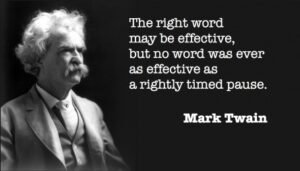 Whether they are a lawyer being interviewed for silk or the High Court bench, most interviewees invariably speak faster and answer before reflecting sufficiently, during an important interview.
Whether they are a lawyer being interviewed for silk or the High Court bench, most interviewees invariably speak faster and answer before reflecting sufficiently, during an important interview.
This invariably is a consequence of the pressure they experience. This tendency to race ahead has the following negative consequences:
- Answers are fired off without sufficient thought, almost like a reflex.
- The subtle point of the question is missed because the interviewee incorrectly anticipated where the questioner was going and formulated their answer before the interviewer stopped speaking. (Something I am frequently guilty of at home);
- Speaking fast does not sit well with leadership or judicial presence;
- Interviewees start talking before they have figured out where they are going and then get lost. Never comes over as great advocacy.
I see this happen frequently with the vast majority of my clients that I run through a challenging mock interview.
In Court or conference, lawyers understand the importance of careful reflection before answering a tricky question. Equally, they recognise the benefit of speaking deliberately rather than racing ahead like Speedy Gonzales (many of you are probably to young to remember him).
In an interview context, when outside of their comfort zone with something personally vested in the outcome, lawyers tend to abandon the strategies and techniques that have served them well.
I have had the privilege of working with and interviewing several US Navy SEAL’s. They train and fight by the philosophy ‘Slow is smooth, smooth is fast’. Useful and relevant. Although SEAL’s fire bullets and interviewees fire off answers, the need for target accuracy applies to both.
If you want to increase the quality of your answers and the positive impact of your presence apply the following two rules:
- For every question you are asked; no matter how straightforward it seems, allow a minimum of 2 seconds before answering. Creating this gap reduces the chances of misfire.
- For the trickier questions (normally the exception) allow yourself anything up to a minute before giving your considered response. You are unlikely to need the full minute as the moment you remove the pressure to instantly answer, clarity of mind usually returns. If you’re an advocate and you’re asked an unexpected and difficulty question by a judge you will always take time to reflect before giving your considered response. So use the same tried and trusted approach in interview.
When done intentionally, slowing down and pausing increases the quality of your answer and adds to your presence.